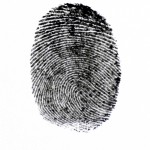 While the penalties are less serious than felonies, a misdemeanor arrest and guilty finding leads to criminal records with the FBI and state police.
While the penalties are less serious than felonies, a misdemeanor arrest and guilty finding leads to criminal records with the FBI and state police.
Illinois misdemeanors carry a maximum punishment of a fine and incarceration of up to 364 days in jail. Crimes for which a person may be punished by more than one year in jail or in prison are categorized in Illinois as felonies. Though misdemeanors carry penalties less severe than felonies, misdemeanors are criminal offenses. People accused of misdemeanors are subject to arrest, mug shots, fingerprinting and criminal records.
A permanent criminal record harms both educational and job prospects. Though rare, a person who leaves Illinois when wanted by law enforcement for a misdemeanor may be subject to extradition if a judge issues a warrant designated for national execution.
Same Act Twice, a Misdemeanor First Time, a Felony the Second Time
 Many crimes are misdemeanors on the first offense, but become felonies on the second offense. For example, retail theft of property valued at less than $150 is a misdemeanor the first time. A second conviction of retail theft (shoplifting) may be charged as a felony.
Many crimes are misdemeanors on the first offense, but become felonies on the second offense. For example, retail theft of property valued at less than $150 is a misdemeanor the first time. A second conviction of retail theft (shoplifting) may be charged as a felony.
While a felony must be approved by a state’s attorney before charges can be filed, police officers are authorized to file criminal complaints for misdemeanors without the approval of the state’s attorney. With the exception of a grand jury indictment or preliminary hearing the criminal process for a misdemeanor as for a felony is generally the same. Often bond for misdemeanors are set by rule of court, allowing for an arrestee’s release on bond without appearing before a judge.
In Illinois, misdemeanors come in three classes. These are defined as Class A, Class B and Class C. Examples of each and potential penalties follow.
Class A Misdemeanors
Sentences can include up to 364 days in jail and/or a fine of up to $2500 for the following charges:
- Aggravated Assault
- Battery
 Domestic Battery
Domestic Battery- Criminal Damage To Property
- Criminal Defacement to Property
- Criminal Sexual Abuse
- Criminal Trespass to Residence
- Criminal Trespass to Vehicles
- Deceptive Practices
- Driving Under the Influence
- Driving with a Suspended/Revoked License
- Endangering the Life or Health of a Child
- Interfering With the Reporting of Domestic Violence
- Patronizing a Prostitute
- Possession of Cannabis (more than 10 grams but not more than 30 grams)
- Possession of Drug Paraphernalia
- Possession of Hypodermic Needles
- Prostitution
- Public Indecency
- Reckless Conduct
- Resisting or Obstructing a Police Officer
- Retail Theft
- Solicitation for a Prostitute
- Theft
- Violation of an Order of Protection
Class B Misdemeanors
Sentences can include up to 180 days in jail and/or a fine of up to $1500 for the following charges:
- Criminal Trespass to Land
- Harassment by Telephone
- Possession of Cannabis (more than 2.5 grams but not more than 10 grams)
- Telephone Harassment
- Aggravated Speeding (30 mph over the posted speeding limit).
- Computer Tampering
- Obstruction of Service of Process
- Littering
- Altering or Defacing a Serial Number on Machinery
- Picketing a Residence
- Simulating Legal Process
- Window Peeking
Class C Misdemeanors
Sentences can include up to 30 days in jail and/or a fine of up to $1500 for the following charges:
- Assault
- Disorderly Conduct
- Possession of Cannabis (not more than 2.5 grams)
All crimes are defined by statutes. Most statutes defining criminal activity are collected and organized into the Illinois Criminal Code found in Chapter 720 of the Illinois Compiled Statutes. Possible penalties are found in the Code of Criminal Procedure in Chapters 725 and 730.
Possible Sentences Other Than the Maximum
While there are maximum penalties for each class of misdemeanor, upon a finding of guilty after a trial or after a plea of guilty, the judge has a range of sentencing options. These include:
Court Supervision: – An order of court that allows a judge to impose a penalty other than jail, but is not on a defendant’s record as a conviction. When the supervision time is complete and all requirements of the court have been met, cases in which the judge orders supervision are often eligible for expungement.
Conditional Discharge: – In a case where a conviction is imposed, but there is no jail sentence. The defendant is conditionally discharged from going to jail with judicial requirements such as community service, restitution or payment of fines.
Probation: The defendant receives a criminal conviction. He may be sentenced to jail in addition to probation, and probation includes much closer monitoring of the defendant than either supervision or conditional discharge, with regular reporting to a probation officer during the probation.






[…] DWLS is at least a Class A misdemeanor. Class A misdemeanors have potential penalties of up to 364 days in jail and/or fines of up to […]